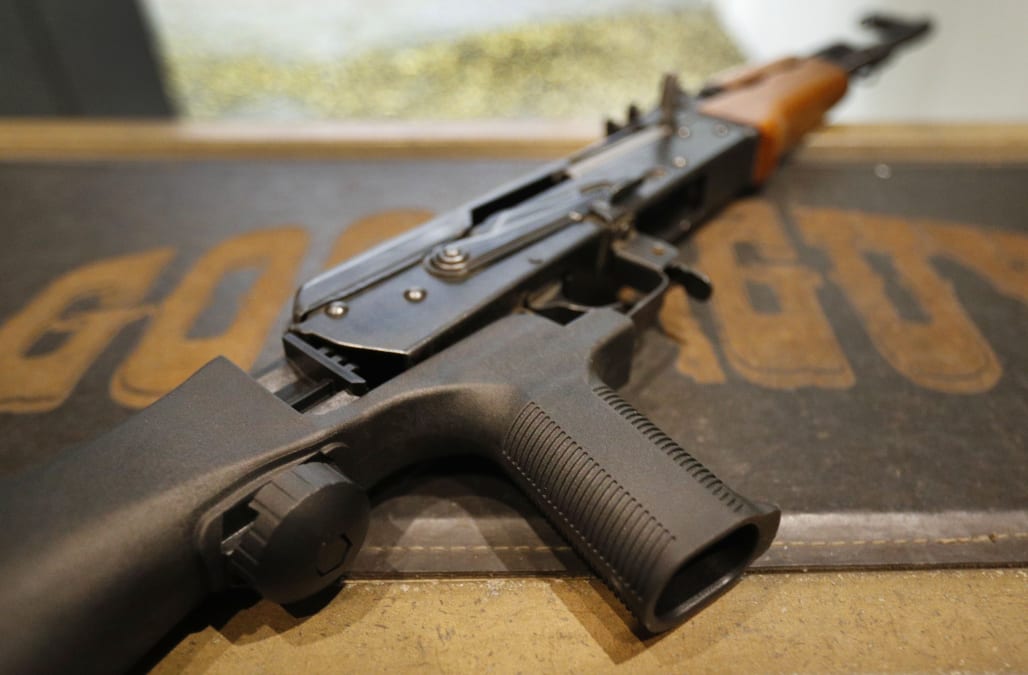
WASHINGTON, March 26 (Reuters) – U.S. Chief Justice John Roberts on Tuesday rejected a bid by gun rights activists to put on hold a ban by President Donald Trump’s administration on “bump stock” gun attachments that enable semi-automatic weapons to be fired rapidly.
Justice Sonia Sotomayor has not yet acted on another similar request. The ban goes into effect on Tuesday but lower courts have yet to rule on an appeals brought by gun rights activists in Michigan and the U.S. capital.
Trump pledged to ban the devices soon after a gunman used them to shoot and kill 58 people at a country music festival in Las Vegas in October 2017. The Justice Department on Dec. 18 announced plans to implement the policy.
A Washington-based federal district court judge in February upheld the ban, prompting gun rights advocates to appeal to the U.S. Court of Appeals for the District of Columbia Circuit. That court heard oral arguments on Friday but has not yet ruled. The appeals court, however, say that the ban cannot go into effect in relation to the specific individuals and groups challenging it.
RELATED: Behind the scenes with Supreme Court Justices
The action by Roberts concerned only the Washington case. The challengers in the Washington case include individual gun owners and gun rights groups such as the Firearms Policy Foundation and Florida Carry Inc.
In the Michigan case, a federal district court judge last week ruled in favor of the administration. The challengers include individuals and the gun rights group Gun Owners of America. The Cincinnati, Ohio-based 6th U.S. Circuit Court of Appeals on Monday refused to put the ban on hold pending appeal.
Sotomayor is now weighing an emergency request in that case.
On the day the administration announced plans to put the policy in place, gun rights advocates sued in federal court to challenge it. They have argued that the U.S. Bureau of Alcohol, Tobacco, Firearms and Explosives (ATF) lacks the authority to equate bump stocks with machine guns under decades-old law.
One of the laws at the center of the legal dispute was written more than 80 years ago, when Congress restricted access to machine guns during the heyday of American gangsters’ use of “tommy guns.” (Reporting by Lawrence Hurley; Editing by Will Dunham)




